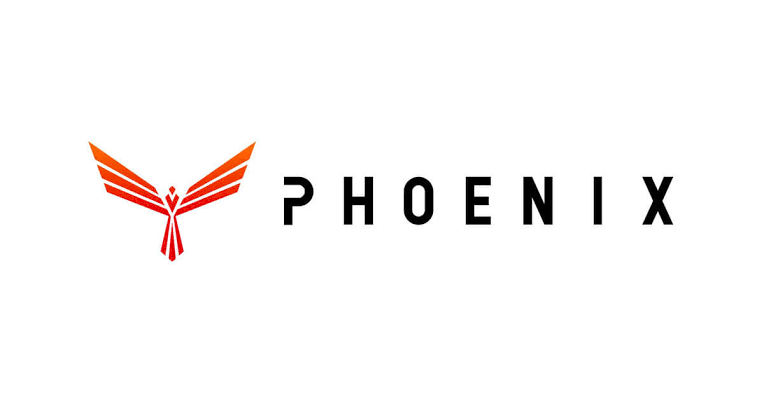Ever read the hashtag #BuyTheDip on the internet and it got you confused. So the new money along with an open internet has its very own urban crypto dictionary too. Crypto trading and investing have gotten the world together with a unique crypto language that is different from other class assets that anyone has known of.

Ready to Learn
When an individual is exploring a new financial market to invest in, it is important to know the basic terminology used in the business. These terms are classified as crypto slang and crypto finance terms. For example, a stablecoin is a crypto finance term, which means a crypto asset that is pegged 1:1 to the U.S Dollar. While #WAGMI means We are going to make it. This slang term describes a crypto community surviving through a rough patch.
- Address: An address is an identification for carrying out transactions on the Blockchain network. An address is a combination of a string of alphanumeric characters.
- Airdrop: A crypto airdrop is the process of digital asset transfer to people involved in a crypto project.
- Altcoin: Altcoin is a synonym to alternate coins. Any coin other than Bitcoin is deemed as an ‘Altcoin’. Ethereum is one of the most popular altcoins.
- Annual Percentage Yield: APY or Annual Percentage Yield are the returns that a crypto investor receives when he/she stakes or lends crypto assets. The interest is calculated based on the amount and the tenure of the lending or loaning.
- Blockchain: A blockchain is a distributed ledger technology that automates a financial model through a smart contract.
- Block Explorer: A block explorer is where an individual’s address and the transactions linked to the address are traceable or trackable. For example, Etherscan, and Polygonscan.
- Crypto: A crypto coin is a virtual currency hosted on a blockchain. These coins have an intrinsic value that oscillates as per the market’s demand and supply equilibrium.
- dApp (Decentralized application): dApp is a decentralized application that stores data. A dApp is an open-source network with no authoritative entity controlling the tokens. The main idea behind using a decentralized application is to have the records in a state of transparency i.e; it is stored on a public Blockchain. Under crypto finance, DeFi is a major use case. Users can borrow, and stake their assets to provide liquidity in markets. On DeFi, users can anonymously transact from any part of the world.
- Decentralized Finance: DeFi applications are built by blockchain developers to automate crypto lending, borrowing, and pooling to earn interest on crypto.
- DCA: Dollar Cost Averaging is one of the popular techniques to calculate the average of your investments. DCA comes in handy for investors who buy assets at various price levels.
- DYOR: An acronym for Do Your Own Research.
- FA: Stands for Fundamental Analysis. Fundamental Analysis is a process of analyzing the intrinsic value of a crypto asset.
- FUD: Fear, Uncertainty, and Doubt is an acronym used to describe unnecessary negative publicity around a coin or token.
- Hot Wallet: A hot wallet is a software through which one can send and receive crypto as it is connected to the internet. The custodial wallet of a crypto exchange is a hot wallet.
- KYC: Know Your Customer is a mandatory process in an exchange that involves crypto investors submitting basic information and documents on the exchange to verify the customer.
- ICO: ICO stands for Initial Coin Offering. It is a way to crowdfund a blockchain project by giving a certain stake to public or private investors or both.
- Market Cap: The market cap of a crypto coin refers to the total coins in the market. The market cap of coins can be calculated by multiplying the current number of coins by the current value of the coins.
- Margin: Margin is the funding available in a user’s wallet. Users usually invest in stablecoins for crypto investing and trading.
- Network: Cryptocurrencies are hosted on blockchain networks. While making a transaction outside the centralized exchange, it is important to add the correct network and memo (in some cases) to ensure your funds are transferred to the right wallet and on the right network.
- P2P: Peer to Peer transactions taking place without a third party. Usually, such transactions are executed on a chain that is linked to a smart contract.
- Pump and Dump: A pump and dump happen when a certain investor or group of investors hoard the token or coin to drive up the price and then dump it on an exchange.
- Satoshi: A Satoshi is the smallest unit of a crypto coin.
- Spot wallet: A spot wallet is where a user can see all his investments in cryptocurrencies. This wallet shows only tokens that are free for trade and selling.
- Stake: Investors can add liquidity to crypto pools by staking their assets in lieu of returns in crypto. There are many types of crypto staking. Users can choose to stake their assets for a predetermined period of time. Some staking protocols allow early unstaking or withdrawals while some have a lock-in period that cannot be changed as it is embedded in the staking protocol.
- Trailing Stop: It is a modification of a typical stop order that can be set at a defined percentage or fiat amount that is different from the crypto token’s current market price. For a long position, an investor places a trailing stop loss below the current market price. For a short position, an investor places the trailing stop above the current market price.
- Total Value Locked: The TVL is the total amount of a cryptocurrency being staked by its holders to help keep the network secure and get staking rewards in return. Besides volume and market cap, the TVL of an asset also holds importance as it reflects the faith of its investor community.
- Wallet: A wallet is where a user’s public and private keys are stored. These keys are required to access an individual’s funds. The private key makes up the password while the public key is the address to which funds can be sent or received.
- Whale: A whale is an investor who invests a large amount of money in a crypto asset. Essentially when a whale (investors buying crypto in bulk) makes a large move on a chain like buying and selling the price of the asset swings accordingly.
Conclusion
Now that you know the basic terms of crypto investing, you can begin your investment journey. If you are fairly new to the crypto game, it’s ideal to start investing via a reliable centralized exchange like MEXC.
Personal Note From MEXC Team
Check out our MEXC trading page and find out what we have to offer! You can learn more about cryptocurrency industry news. There are also a ton of interesting articles to get you up to speed with the crypto world. Lastly, join our MEXC Creators project and share your opinion about everything crypto! Happy trading!
Join MEXC and Get up to $10,000 Bonus!
Sign Up


